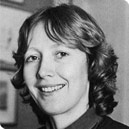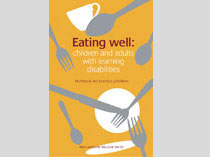About Caroline Walker
 Caroline Walker was a fearless and effective campaigner who believed passionately in improving public health through good food.
Caroline Walker was a fearless and effective campaigner who believed passionately in improving public health through good food.
Caroline was born in Hampshire in 1950 and educated at Cheltenham Ladies College. In 1972 she completed a degree in biology at Queen Elizabeth College, and shortly afterwards began a postgraduate course in Human Nutrition. Between 1980 and 1984 Caroline’s work included:
- the writing and publication of her bestseller “The Food Scandal” (with Geoffrey Cannon)
- becoming acting secretary to the NACNE report chaired by Professor Philip James
- researching at a number of institutions across the country
- tirelessly campaigning for raised nutritional standards
- working in the community in Hackney
During the following years, the expanded version of “The Food Scandal” was published and Caroline became chief advisor to the BBC (Food and Health Campaign), and advisor to Granada and Thames TV for over 30 nationally networked programmes. In response to a request from a staggering half a million people, Caroline wrote or co-wrote six booklets to accompany the TV series. This was a very productive time for Caroline during which she lectured up and down the country and gave advice to many people, both professionals and concerned consumers. In addition to being named Woman of the Year, Caroline co-founded the Food Additives Campaign and shared the Periodical Publisher’s Association prize for Campaign of the Year. She was advisor to the following:
- Coronary Prevention Group
- The London Food Commission
- New Health magazine
Caroline was diagnosed with colon cancer after emergency treatment in January 1985, and despite two further operations to relieve a bowel obstruction, she died on September 22nd 1988. Throughout her illness Caroline continued to work and campaign, recording an interview for the Radio 4 Food Programme on August 31st 1988. Publicly, Caroline is remembered as a fearless and effective campaigner who believed passionately in improving public health through good food. Those who knew will remember her humour, her love of nature, her care for children, and her work as a scientist and tireless campaigner. As Dr Hugh Sinclair (Director, International Institute of Human Nutrition) wrote of her:
“We cannot replace her contribution to nutrition. Her knowledge, her intellectual honesty, her brilliance as a communicator, her fearlessness, made her outstanding… So many of us will treasure the privilege of having known her and admire her immensely brave struggle against adversity.”







